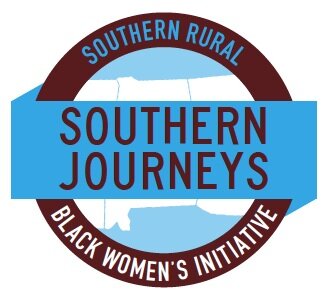Our Journeys
Dorothea heard about Southern Journeys from a friend who told her, “you need to get in this.” She grew up in a sharecropper family with 15 siblings. Her mother taught her home sewing and she took home economics in high school. In the 11th grade, she took her first of many jobs in sewing factories that all eventually closed or went overseas. She worked in one factory for almost 25 years.
Willie grew up in a sharecropper family on a plantation near Marks, Mississippi -- the starting point for the mule train caravan to Washington, D.C. for the Poor People’s Campaign in 1968. Her older siblings participated in local marches surrounding the campaign, and the family was evicted. Her father and older brothers went to another state to find work. She and her mother and younger siblings and cousins moved into a shack in the country and Willie, at 13, found herself doing the shopping and paying the bills because her mother could not read or write.
“But my mother could sew, and she taught me,” Willie said. “She could look at you, lay out a piece of material and cut it so it would fit you perfectly. She had a pedal sewing machine and even when she didn’t use it, she made stitches so small they looked made with a sewing machine. She’d look in the Sears Catalog and ask us, 'Which one of these dresses you want?’ and then make it with fabric from clothing discarded by the woman she worked for. She’d be making stuff for me and I’d be sewing stuff for my doll.”
Sonya learned to sew and crochet from her grandmother, a schoolteacher who kept a trunk full of old clothing and fabric in her sewing room and let Sonya “go in there and cut up things and use the sewing machine. I never knew how she had time to refill it but every time I went there, there were whole new things.”
To read more about the extraordinary women behind Southern Journeys, click the "Meet the Worker-Owners" tab in the site navigation above.

